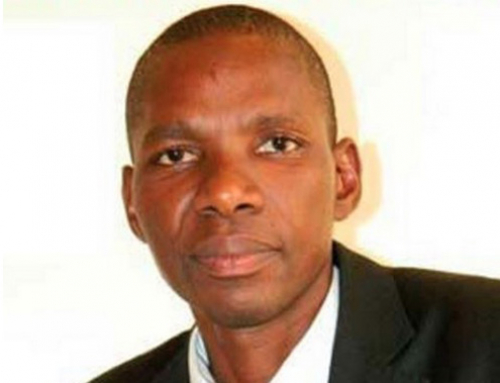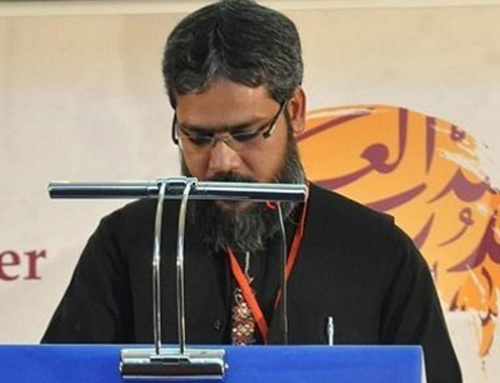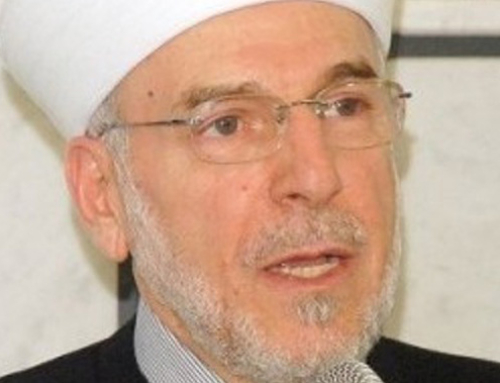Mounir Birouk
December 5, 2013
In his book The Formation of Arab Reason, the well-known Moroccan intellectual and philosopher Mohammed Abed al-Jabri divided the Arab-Islamic world into two disparate epistemic entities: an east which is inclined to rhetoric, spirituality and esoterism and a west which slants towards rationality and evidenced argumentation. (1) An interestingly influential constellation of Maghrebian scholars whose contributions to the spiritual revival of the umma are well-documented immediately come to mind, putting al-Jabri’s claim at stake: Mulay ‘Abdeslam b. Mshish al-‘Alami (1163 – 1228), Abu l-Ḥasan ash-Shādhilī (1197-1258), Mulay L‘arbi ad-Darkawi (1760-1823), Emir Abdelkader (1808-1883) and many others. Only last year, Imam Abdessalam Yassine, a great, and in many measures a unique, scholar in his own right left this world. A man in whom the heights of spirituality and the virtues of rationality come to fruition in an incomparable synergy, or wisdom in the Qur’ānic language, “He gives wisdom to whom He wills, and whoever has been given wisdom has certainly been given much good” [2: 269].
Who is Imam Yassine? Like all great figures, Imam Yassine is unfortunately often reduced to one of the multi-faceted dimensions of his personality. While it is highly likely that most people recognize him as a charismatic political figure and a major opponent of the Moroccan despotic regime, others see in him the prolific writer, the self-educated multilingual, and the sharp-minded intellectual who approaches, with an intensely innovative and liberatory breadth, the key issues and questions which have haunted and still haunt the Muslim mind in the course of the history of the umma. Yet, others would rather be attracted to his deep and imposing spiritual presence which draws from the celestial realms of divine grace. Only few, however, would recognize that Imam Yassine was all that and more; and this is precisely the cause of his singularity and greatness. Yassine was a man of Iḥsān, a man of perfection! When he played violin and chess in his youth, when he was a prominent pedagogue in the ranks of the ministry of education, when he writes in a rare appealing and deep language, (2) when he led a movement whose name soon glared in the sky of politics, and certainly when he aspires for God’s complacence and pleasance; in all that, he raises his heard and his heart’s eyes to the horizons of excellence. With a sense of perfection he did all this, and with a sense of balance as well.
Balance! That precious and rare quality which all the promising attractions and achievements of the post-industrial age fall short of providing to the worn-out modern human being. As Imam Yassine taught us, balance in one’s life correlates proportionately with the person’s receptivity of the light of the Revelation. In other words, the more is the person’s proximity from Transcendence, the more balanced is his/her life; and the less proximity, the more troubled, miserable and imbalanced it will be. Once he shut off his heart and soul from the truths of the other world, modern man has been doomed. W.B. Yeats captures the misery of the modern world in a memorable poetic scene:
Turning and turning in the widening gyre
[. . .]
Things fall apart; the centre cannot hold.
Mere anarchy is loosed upon the world. (3)
In Yassine’s life as well as in his voluminous innovative project, what in the history of Muslims has long been seen as paradoxical and antithetical is reconciled and brought together in an outstandingly harmonious match. The aspiration for spiritual excellence, and not a mere dry application of a manual of rules and regulations- goes hand in hand with the believer’s concern for the betterment and prosperity of his society, for the eradication of injustice, and for the welfare of his fellow human beings. To be sure, his choice of Spirituality and Justice, a double-bind concept which subsumes the main contours of his project, successfully encapsulates the duality of the spiritual aspirations and the earthly obligations. (4) So successful was his choice of the expressive Qur’ānic pair of (justice and spirituality) [16:90] that, as he himself says, “some people even envy us for the appeal of the name.”
For Yassine the alchemy which shall bind together all our deeds and efforts in this world is the awareness of that to which modern man today turns his back, and shuts his ears: the Hereafter, the truth of all truths. Woven into the fabric of Imam Yassine’s writings- which span fields of knowledge as disparate as history, philosophy, the history of ideas, theology, politics and gender- is a constant and an insistent reminder of the destiny of the human being on that day when he/she will stand bare in front of his/her Creator. The human being is- not a being-towards-death as Martin Heidegger conjectures; he is a being-towards-after-death. While most people would stop at the promising fruits of democracy, Imam Abdessalam Yassine sees that it only fulfills the clay-part of us, consigning the spiritual component into oblivion. Balance is always in question:
Our main take on democracy is that it does not propose to the human being an outlet from blasphemy- the greatest injustice of all. In the creed of democracy, there is nothing wrong with the person dying so stupidly without knowing what awaits him/her after death. [Shūra and Democracy, 24]
Imam Yassine’s existential concern about the authenticity of faith and the honesty and vitality of the believer’s intentions and actions is in some respects reminiscent of Soren Kierkegaard’s concern about how one should be a “Christian in Christendom”. Religion is not a manual of rules and prohibitions; it is about the purity of the heart; the dwelling place of the revealed light.
In his life as well as in his writings, Imam Yassine’s soul hovers there, in the open horizons of eternity- of the Malakūt [the Dominion, which is the world of the unseen] – although his body dwells- by necessity- here in the world of mortality. I will never forget, nor shall I, that day in May, 2000 when Imam Yassine met the press for the first time after ten years of house arrest. The press agencies were stuffed waiting for the statements, declarations, accusations may be, and political initiatives of the charismatic leader. Disappointingly, the man hardly talked about that! Asked about the plans of his movement now that he was released, he replied, “education, education and education”. Hardly an hour or so through the press conference, Imam Yassine abruptly brings everything to an end as soon as he heard the call to prayer. “God is Greater”, he retorted. Who would do something like that? Who would resist the glare of the cameras and the temptations of public airing except a man whose soul is so caged in this world waiting for those moments of connection with the divine! Isn’t it that in prayer that the believer is brought most closely to his/her Lord as the beloved prophet [God bless him and grant him peace] told us in a hadith?
Yassine was a man of God. A man who reminds you of those great God-fearing scholars in the history of the umma. At least this is what all those who had the chance to meet him attest to. One remembers in this score, the testimony of ‘Azzām at-Tamīmī, the Palestinian British academic and political activist, as well as of dozen others who talked about the captivating spirituality, the natural simplicity, the high morality, and the uncontrived humility of the Imam. Yassine used to exude a spiritual aura which radiated on whoever happened to be in his presence. In his testimony to al-Masā’ Moroccan newspaper, Mohammed al-Hbabi, one of the founders of the National Union of the Popular Forces and a heavy-weight leader in the Socialist Union of the Popular Forces party- recounts his visit, together with another prominent leader in the same party, to Imam Abdessalam Yassine in 2000. “The man was all the time cheerful and optimistic in the deep sense of the word”, he says. “Abdessalam Yassine”, he adds, “. . . indulges in a sense of tranquility, serenity and self-confidence, just like a saint. He impressed me tremendously.” (5) How come that a staunch secular political activist who boasts of decades-long of struggle within the ranks of a socialist party be so touched? What did Imam Yassine have that he did not? Many people, from all ranks and from all walks of life who met him would simply assert that truth: that they were in the presence of a man who has just come back from an encounter with the Holy, with the numinous in Rudolf Otto’s words. Yet, the Imam’s spirituality was not of the “mysterium” or the “tremendum” type. It was immersed in tranquility and serenity. It was meant to educate, not to bedazzle.
Yes, all the time cheerful and optimistic. All those who visited him during those ten bleak years when he was put under house arrest would be surprised by his cheerfulness and positivism. So radiating and abundant was his optimism that the visitor would never leave without taking his share. A pure soul and a big heart! Mercy was also one of the key salient attributes of the Imam. When king Hassan II passed away, Imam Yassine raised, to the surprise of everybody, his hands to ask forgiveness and mercy for a dictator who did everything to turn his life into hell: imprisonment, incarceration in an insanity asylum, house arrest, and all sorts of harassments which excluded neither the Imam’s family nor his acquaintances. For Imam Yassine, time is so precious to be squandered in petty feuds and polemics; “the one who often turns aside every now and then will never get to his destination”, he often used to say. He abstained from engaging in any polemics with any of his detractors. And yet, it was the will of the Almighty, a cunning of history if you wish, that those who penned pages, published videos and did everything they could to belittle and bedevil the Imam turned up in his massively huge funeral and delivered eulogies to his person. Another telling practical lesson in ethics!
Today, I heard, efforts to document the legacy of the Imam are in full swing. The initiative is called The School of Imam Abdessalam Yassine. To be sure, the man was a school in the deepest sense of the word. In his school, one is educated to strive for excellence in everything, for Iḥsān, in all its three senses. Imam Yassine was a school because, in the modern language of pedagogy, he modeled everything he taught. Not only does he urge you to remember God, to praise Him, to send prayers and blessings to his Messenger [God bless him and grant his peace], to be merciful to others, to give from your time, effort and money for the sake of God the Almighty . . . etc, but always shows you how and when to do it. Knowledge, deep enduring knowledge, the wisdom goes, “is not drawn from the bellies of volumes, but from the companionship of scholars.” Imam Yassine was also an outstanding school because in his school one learns to attend to the crux of the matter; the thing-in-itself to borrow Kant’s words and not mere surfaces and appearances. His was also a unique school since in it you learn how to keep balance; how to make your center hold.
What a school! Blessed is the teacher and blessed are the pupils.
References
| ↑1 | For the purposes of this article, I ignore al-Jabri’s claim about the purported oppositional relation between reason and spirituality as well as his divisional conception of the epistemic cartography of the Islamic world. |
|---|---|
| ↑2 | In Abdessalam Yassine’s writings, says Abdel Ilah Belkziz, a prominent liberal academic and philosopher, one encounters “ a rare appeal and depth which attest to an authentic encyclopedic knowledge, both traditional and modern”. See his interview with Mustapha Matba’a Gy in http://iranarab.com/Default.asp?Page=ViewArticle&ArticleID=441. Accessed: 2 December, 2013. |
| ↑3 | William Butler Yeats, “The Second Coming”, Norton Anthology of English Literature, 7th ed. Ed. Stephen Greenblatt et al. Vol 2. New York: W.W. Norton & Company, 2000. 2106. |
| ↑4 | In his interpretation of this verse, our master Abdellah Ibnu Masud may God be pleased with him said that it is the most comprehensive of all the verses in the Quran. |
| ↑5 | Mohammed al-Hbabi, “Confessions Chair” in Al-Massae newspaper, 11 December, 2011. |






